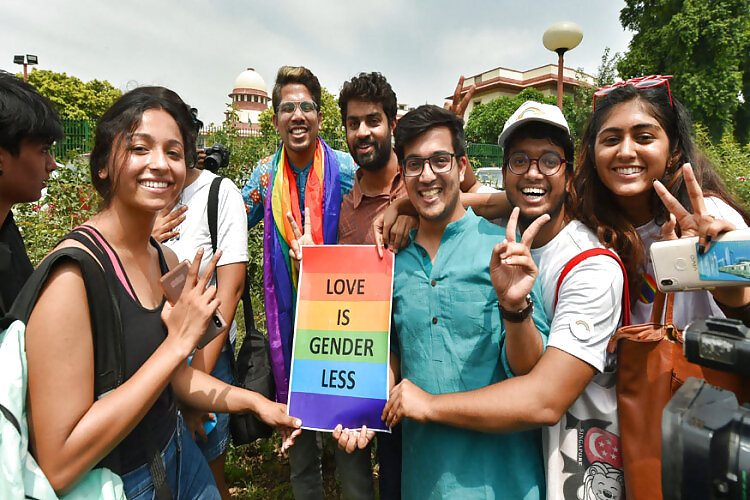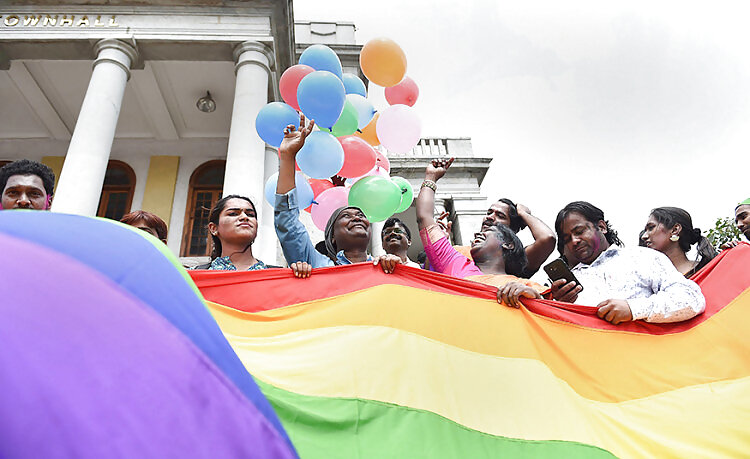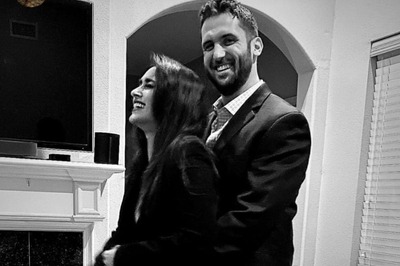
views
New Delhi: The Supreme Court on Thursday scrapped a colonial-era ban on gay sex in a landmark judgment that sparked celebrations among LGBTQ activists who welcomed it as a harbinger of a more inclusive India.
Parts of Section 377 of the Indian Penal Code, which criminalised consensual unnatural sex, are "irrational, indefensible and manifestly arbitrary", the apex court said in its ruling that made India the 26th country in the world where homosexuality is legal.
The five-judge bench led by Chief Justice Dipak Misra was unanimous in overturning the ban. Delivering four separate but concurring judgments, the top court set aside its 2013 verdict which had reinstated gay sex as a criminal offence after the Delhi High Court had made it legal in 2009. It was punishable by up to 10 years in prison.
"Any consensual sexual relationship between two consenting adults - homosexuals, heterosexuals or lesbians - cannot be said to be unconstitutional," said CJI Misra, as he read out the judgment.
Supporters of the campaign to scrap the ban milled around the court before the verdict and cheered the decision, hugging one another and waving rainbow flags, a symbol of LGBT pride, and cutting cakes.
Some were overcome with emotion, while others waved banners with slogans such as "Gay and Proud" and "I am who I am". A few distributed sweets in celebration. Spontaneous pride marches were also organised in Bengaluru and Mumbai. “I'm so excited, I have no words," said Debottam Saha, one of the petitioners in the case.

People react after the Supreme Court verdict decriminalising consensual gay sex, outside the Supreme Court in New Delhi. (PTI Photo)
The bench, which also comprised Justices RF Nariman, AM Khanwilkar, DY Chandrachud and Indu Malhotra said criminalisation of gay sex was violative of the right to equality and the right to live with dignity, capping the 17-year legal struggle to overturn the ban.
“History owes an apology to members of the community for the delay in ensuring their rights, for denying them their rights and compelling them to live a life of fear,” said Justice Malhotra.
Dealing with a clutch of petitions, the top court held that Section 377 was used as a weapon to harass members of the Lesbian, Gay, Bisexual, Transgender and Queer (LGBTQ) community, resulting in discrimination.
In its 493-page judgment, the bench said aspects of Section 377 dealing with unnatural sex with animals and children remain in force. "Any kind of sexual activity with animals shall remain a penal offence under Section 377 of the IPC," it said.
The judgment came on a batch of writ petitions filed by dancer Navtej Jauhar, journalist Sunil Mehra, chef Ritu Dalmia, hoteliers Aman Nath and Keshav Suri and business executive Ayesha Kapur as well as 20 former and current students of the IITs.

LGBT community supporters celebrate after the Supreme Court verdict in Bengaluru. (Image: PTI)
CJI Misra, who wrote the judgment for himself and Justice Khanwilkar, said the denial of self-expression was akin to inviting death. The bench said courts must protect the dignity of an individual as right to live with dignity is recognised as fundamental right. It termed sexual orientation a "biological phenomenon".
Justice Chandrachud, while reading out the operative portion of his verdict, said members of the LGBTQ community were targeted and exploited due to Section 377. They have constitutional rights like that of any other citizen, he said.
Activists hope the scrapping of the ban will uphold the right to equality but many acknowledged that discrimination would persist.
Describing the verdict as landmark, Anjan Joshi, member of the Society for People, Awareness, Care and Empowerment (SPACE), said it was a start. "We know we have a long way to go in terms of right to adoption, right to marriage but it is a very welcome beginning," Joshi said.
Balachandran Ramiah, a second petitioner, also said there was "a long road ahead when it comes to changing societal mindsets", and stressed the importance of employers ending discrimination in workplaces.
"A number of companies up until now were unable to put these down on paper," he said, referring to steps to end discrimination. "Now they can."
Others focused more on the victory today. "Kudos to the Supreme Court for reinstating our faith in the Indian judiciary system. Finally, we are a part of an inclusive society, a society free from taboos, free from judgment. We are finally a country where love won't be defined by genders anymore," Ishaan Sethi, founder of the Delta App, a networking platform for the LGBTQ community, said.
The Congress also put out a Twitter post welcoming the judgment. "We join the people of India & the LGBTQIA+ community in their victory over prejudice. We welcome the progressive & decisive verdict from the Supreme Court & hope this is the beginning of a more equal & inclusive society," it said, adding intersex and asexuality to LGBTQ.
Several of its leaders, including Shashi Tharoor, welcomed the verdict. He said "the government has no place in the bedroom". "Private acts between consenting adults is something which no government should have criminalised as unfortunately we have done," he said.
On the other end of the political spectrum, the RSS said in a statement that while it doesn't see homosexuality as a crime, such relationships were not "compatible with nature" and so it does not support them.
The United Nations in India welcomed the verdict, saying sexual orientation and gender expression form an integral part of an individual's identity the world over. Violence, stigma and discrimination based on these attributes constitute an "egregious" violation of human rights, it said.




















Comments
0 comment